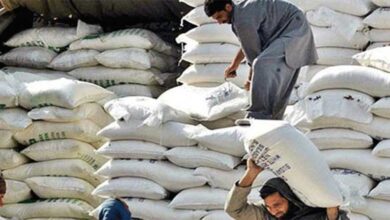ISLAMABAD: Federal Board of Revenue (FBR) Chairman Rashid Langrial has said that the government has no plans to increase tax rates, as it would not help achieve the desired revenue targets.
The FBR chairman acknowledged that there is a revenue leakage of Rs1,200 billion in the income tax sector alone, as the top 1% earners in the country were under filing.
Regarding the new tax laws, he mentioned that while the non-filer category has not been completely abolished, it has been rendered inactive. Now, only registered filers will be eligible to conduct transactions.
Langrial outlined stringent measures to improve tax compliance, including sealing premises of businesses with sales exceeding Rs100 million if they fail to register.
He stated that failure to register would also result in appointing a receiver to attach properties and freeze bank accounts. He clarified that the FBR would not directly obtain data from banks but would use algorithms to access relevant information when a specific threshold is crossed.
Langrial elaborated on proposed amendments, stating that only basic “Asaan Accounts” would be available for non-active taxpayers. These accounts would have a transaction limit of Rs1 million, while current and savings accounts would be restricted to active filers.
“If someone is not a filer, they will not be able to operate current or savings accounts,” he explained.
Langrial emphasised that non-filers would not be allowed to purchase property. Even for filers, eligibility to purchase property would be determined by their declared wealth.
For example, if a filer declares assets worth Rs10 million but attempts to buy property valued at Rs12 million, they would not qualify. Eligibility would be assessed based on the last filed wealth statement, with allowances for up to 130% of declared assets. Gifts, inheritances, or remittances would also be considered in determining eligibility.
“For those deemed ineligible, purchasing property, vehicles, or investments in securities and mutual funds will not be allowed,” Langrial added. Families, however, would be permitted to pool resources within the prescribed limit to acquire assets.
Langrial acknowledged that the FBR’s revenue target of Rs12,970 billion for the fiscal year was ambitious, especially given assumptions related to Large-Scale Manufacturing (LSM) growth and inflation. While inflation, measured by the Consumer Price Index (CPI), has declined faster than expected, it negatively impacted revenue collection as projections were based on nominal rather than real growth.
In the first five months, the FBR faced a revenue shortfall of Rs340 billion, a trend likely to continue into December 2024. Langrial attributed the shortfall to optimistic tax collection targets and the country’s low tax-to-GDP ratio compared to international standards.
He noted that some policy measures have shown progress, citing a rise in retailer tax return filers from 0.2 million to 0.6 million as of September 2024. However, despite the FBR’s efforts, the overall number of active filers stands at 5.5 million, well below the potential of 11 million.
The FBR chief highlighted significant revenue leakage among the top 1% of taxpayers. Out of 0.67 million individuals in this category, only 0.2 million filers contributed Rs0.5 trillion in income tax, leaving Rs1.2 trillion in potential revenue uncollected due to under-filing and evasion.
“If the top 1% paid their taxes fully, an additional Rs1.2 trillion could be collected,” he said.
Langrial acknowledged that simply increasing tax rates was not effective and stressed the importance of ensuring compliance at existing rates. He revealed that the FBR is hiring 1,400–1,500 new auditors to enhance its audit capacity by January 2025.
“Tax enforcement cannot be enhanced overnight, but these measures will foster a culture of compliance,” he remarked.
The FBR’s recent tax measures, including an advance tax on wholesalers, fell short of expectations. The projected revenue of Rs0.14 trillion from this measure yielded only Rs0.49 trillion, indicating gaps in implementation and analysis.







